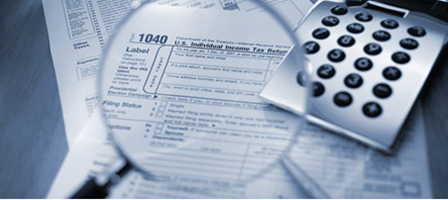IS A HOME OFFICE RIGHT FOR YOU?
In the current business environment many smaller firms are looking for ways to cut costs. One such possible move would be to relocate from rented office space to a home office. With today’s modern means of communications and virtual marketplace this may be an appropriate consideration for your business.
The advantages include:
- Eliminating the cost of your rented space, which should be a substantial savings.
- The ability for you to deduct from your business income some home expenses such as utilities and certain maintenance costs that are not otherwise deductible. Those expenses will include a depreciation allowance for the part of your home that is the office.
- A portion of your mortgage interest and real property taxes will be deducted on your business schedule rather than as itemized deductions. This is especially helpful to those who do not (or only marginally) itemize their deductions.
- You will be eliminating the costs of your non-deductible commuting travel, while business travel will now generally be measured from your front door.
Generally, for a portion of one’s home to qualify for the home office deduction, the office area must be used exclusively in a taxpayer’s trade or business on a regular, continuing basis. The taxpayer must be able to provide sufficient evidence to show the use is regular. Exclusive use means there can be no personal use (other than de minimis) at any time during the tax year. Use of only a portion of a room is acceptable as long as the taxpayer shows that section is totally for business.
One of the following must also apply. The home office must be:
b. Used as a licensed day care center;
c. A separate structure not attached to the taxpayer’s home but used for business;
d. A place where the taxpayer meets with customers, patients, or clients (just telephone contact with clients is not enough to meet this test); or
e. The principal place of business for any trade or business of the taxpayer (see definition below).
Generally a self-employed individual would qualify under the principal place of business test. A home office qualifies as a principal place of business if:
b. There is no fixed location of the business where the taxpayer conducts substantial administrative or management activities of the business.
c. If a taxpayer conducts administrative activities at a fixed location outside the home, he or she is still eligible to claim a deduction as long as the administrative activities conducted at the outside location are not substantial (e.g., a taxpayer may do minimal paperwork at another fixed location of the business).
Just because you are self-employed does not mean you automatically qualify for a home office deduction. For example, most real estate sales people are self-employed and work through a broker. In many instances, the broker will also provide the agent with a desk in the broker’s office. When that occurs, the agent no longer meets the requirements of “b” above and must rely upon and meet the exception conditions provided in “c” to qualify for a home office deduction.
There are two significant downsides to a home office. First, to the extent of the depreciation taken on the home, gain when you sell it cannot be excluded under the home sale gain exclusion rules. Second, if the home office is in a separate structure, then total gain attributable to the separate structure does not qualify for the home gain exclusion. You should also note that the home office deduction is limited in any year that your business operates at a loss or the home office expenses are greater than the net income of the business.
Before making such a move, we recommend you contact this office so we can review your unique tax situation to see if the “after-tax” results warrant such a move.





Leave a Reply
Want to join the discussion?Feel free to contribute!